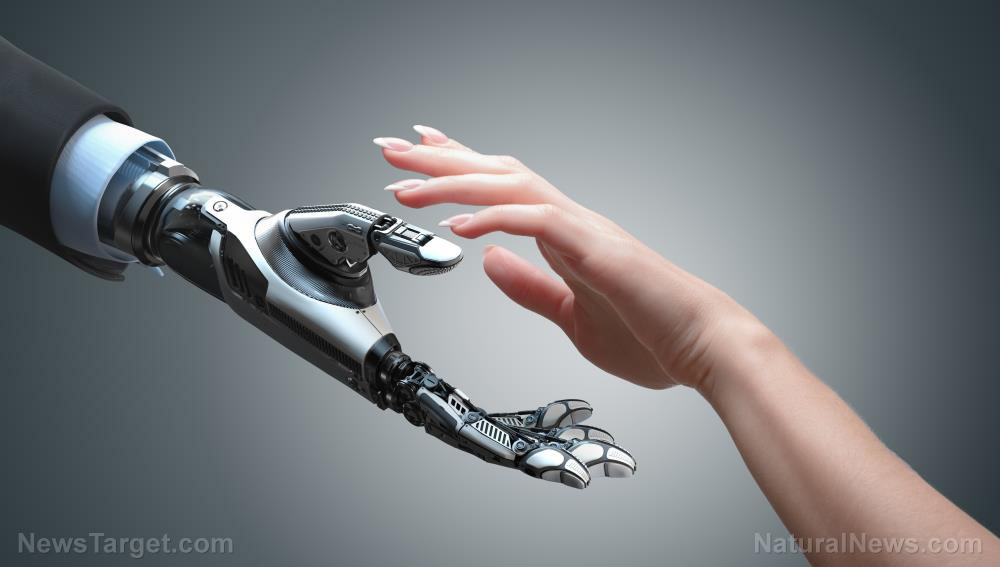The computer will see you now… AI better than some doctors at detecting childhood diseases
06/27/2019 / By Stephanie Diaz

Many people rely on rapidly changing technology to get through their day. Sending mail, which was once a very slow process (the term “snail mail” comes to mind), is now usually sent and received electronically in just a matter of seconds.
The medical field is no stranger to these improvements. Take, for example, the microscope: These days, it’s possible to visualize objects that cannot be seen with the naked eye with the help of a microscope — from the compound microscope, which can at most view bacteria, to an electron microscope, which can zoom in all the way to give an image of a large molecule.
A recent study from Guangzhou Medical University in China, which was led by University of California (UC), San Diego researcher Dr. Kang Zhang, revealed an artificial intelligence (AI) program that can recognize the symptoms of childhood diseases. To give the new AI program the ability to diagnose diseases, the researchers, together with a team of 70 scientists, inputted over 100 million data points from 1.3 million records from patient visits between January 2016 and January 2017.
The tests showed that the AI system diagnosed respiratory infections and sinusitis with 95 percent accuracy. Zhang and his team also found that the program did well in recognizing less common diseases such as acute asthma, bacterial meningitis, varicella, and mononucleosis.
The study, which the team published in Nature Medicine, is the first of its kind to highlight the process by which AI absorbs unstructured data and uses “natural language” to imitate how a physician diagnoses his patient.

AI can diagnose but can’t beat the human touch
Although the project shows promising results, experts believe that it still cannot replace real doctors. For Duc Pham, a professor of engineering from The University of Birmingham who was not involved in the study, the current research was an “excellent application of deep learning.” However, he added that the program cannot guarantee 100 percent correct results, no matter how many training examples they use.
“On average their system performed better than junior doctors, [but] it will not replace clinicians,” he added. “Critical judgments or decisions must always be left to qualified human experts to make.” (Related: Welcome to your jobless future… Artificial intelligence will replace half of all jobs in the next decade.)
While the current study can be beneficial for those in the medical field, as the new AI program will improve health services and provide an accurate diagnosis, the fact the AI technology could potentially take over jobs of healthcare practitioners is a cause for concern. In a journal article published in The BMJ, researchers Vanessa Rampton, a fellow from the Institute for Health and Social Policy at McGill University, and Giatgen Spinas, emeritus professor at University of Zurich, maintained that machines will never replace doctors entirely because the interrelational quality of the doctor-patient relationship is vital and cannot be replicated.
Rampton noted that these so-called AI doctors or any computer or robot health assistance lack a so-called human touch. Patient care requires “showing devotion or concern for the other as a person” that just cannot come from somewhere other than another person. She added that while AI robots can be equipped with the ability to show sympathy, it is different from the way humans behave in situations that ask for it. However, in the same way people don’t really treat virtual assistants like Siri and Alexa like their best friends, it seems like a stretch to expect patients could be emotionally connected — or even dependent — to robot healthcare professionals.
Read more about artificial intelligence and its effect on society at MedicalTech.news.
Sources include:
Submit a correction >>
Tagged Under:
artificial intelligence, breakthrough, discoveries, future science, future tech, healthcare, innovation, inventions, Medicine, robot jobs, robot takeover, robotics, robots, science and technology
This article may contain statements that reflect the opinion of the author





















